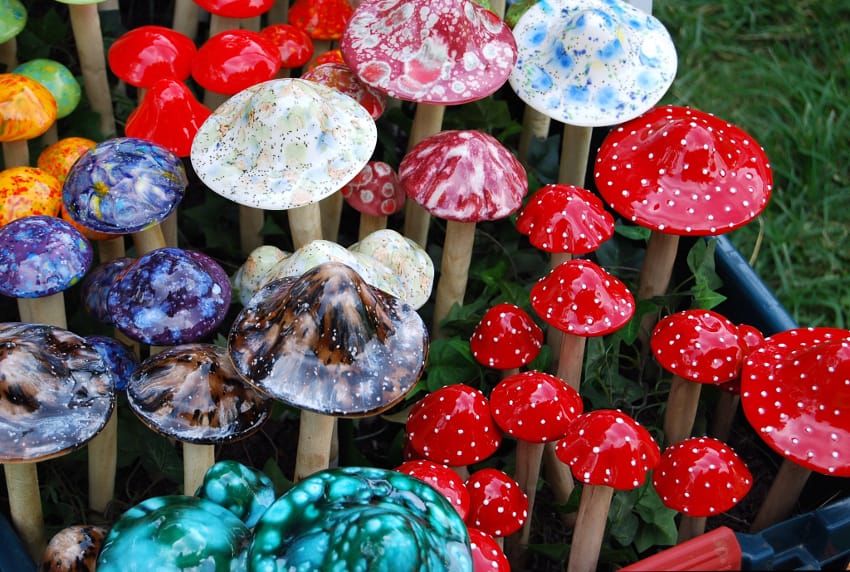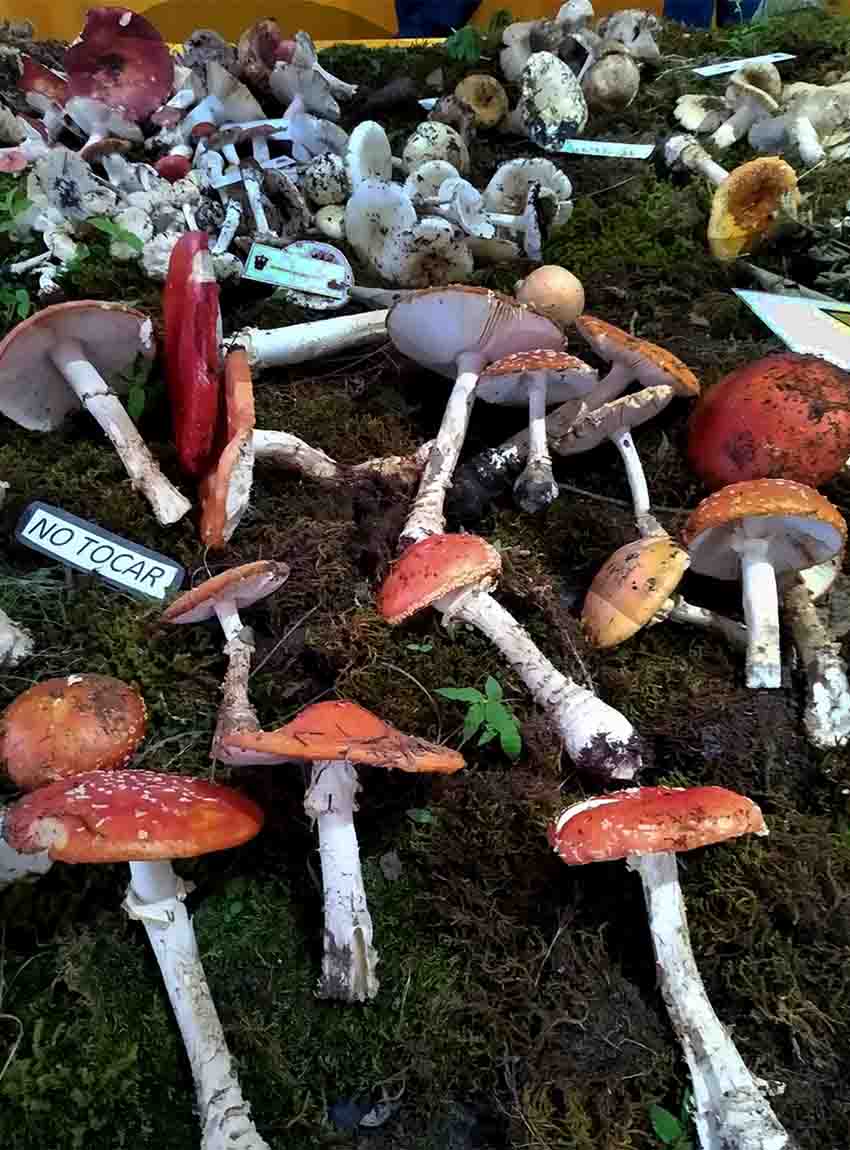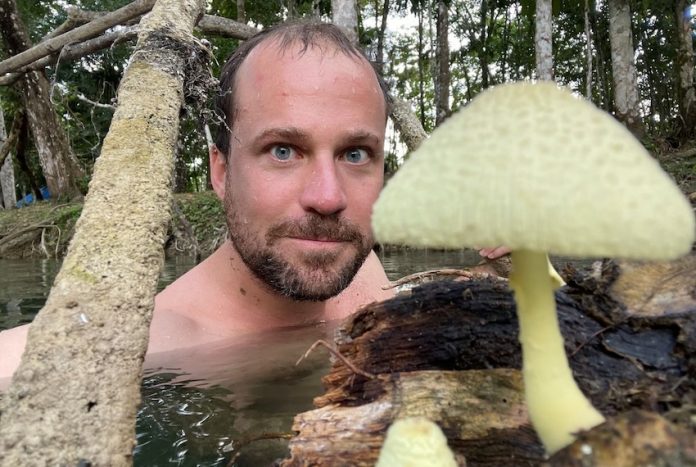Vegan tacos aside, when you think about mushrooms in Mexico, what comes to mind? Frolicking through the lush, green forests of San Jose del Pacifico? Chasing elves and fairies through trees that appear to be breathing? Watching multi-colored clouds transform into real life, shimmering animals, only to disappear into dust when you touch them?
When I scheduled an interview with Mexico-based mushroom enthusiast Dennis Walker, this is exactly the conversation I envisioned. I figured if I didn’t come out with the necessary information for an article, I’d at least get hooked up with a reputable shaman to help me find God during a visit to Tulum. I mean, why else take mushrooms in Mexico, am I right?

Turns out, I’m not.
This is not the world of fungi in which the owner of Mycopreneur, the leading mushroom publication which follows the emerging psychedelic industry and the cultural, historical, spiritual and medicinal use of traditional functional mushrooms, lives.
Dennis entered my life as many do these days, through social media. I watched his satirical video about expats in CDMX, a group into which I am unfortunately lumped. It made me laugh so much that I reached out to hear his thoughts on life as an entrepreneur in Mexico and his opinion of the best magic mushroom retreats within driving distance.
What I learned was just as profound as a weekend of psychedelics. I came out of our chat with a deeper respect for mycology and an understanding of how we, as expat immigrants, can assimilate into our chosen society.
View this post on Instagram
At 17, Dennis tried magic mushrooms for the first time and had a “pivotal, transformative, cathartic experience”. There were no lingering side effects, minus the shift in how he viewed life as a whole. He was fascinated by the fact that the source was natural as opposed to lab-created, and his investigation began.
He found himself in Mexico, where mushrooms are revered and used in a variety of ways, from taco fillings to healing teas. It felt familiar and comfortable to be here. Growing up in San Diego had intertwined Dennis with Mexican culture, even prompting him to produce a documentary about life on the border in 2017. After graduating university he worked as a high school teacher in Southern California, but his interest in mushrooms remained.
During summer breaks, he’d return to Mexico, introducing himself to the indigenous communities fighting to conserve and protect the fragile fungi. Dennis got involved with groups like Cooperativa Simbiosis in Mexico City, Fungaria in Chiapas, and Fungipeople in Jalisco. He worked with them to organize events like cooking classes, conservation techniques, and even mushroom beer brewing. He learned how and when to forage, which species are used ceremoniously and why, and how to grow his own.
As this fascinating world of mycology unfolded, Dennis left the education industry to support his fellow mycologists through an online platform, a podcast, and international speaking engagements. He relocated to Mexico, where, as he puts it, “I found a sense of charm and character that I don’t sense in the US.”

That’s when the light bulb went off. It was his passion that didn’t just take him down a new path professionally and personally, but directly into a society that welcomed him with open arms. Isn’t that what we, as expats, are ultimately looking for?
A fusion like this doesn’t happen on its own. As Dennis puts it, it’s “incumbent on people moving to a new place to work on assimilating, integrating, and building connections locally”. Diving into something you love alongside others who share that love is paramount to connecting with your adopted community.
Expat doesn’t have to mean “foreign”.
What do you want to do more of? Learn more of? Experience more of?
Let your interests guide you, and Mexico will open its doors.
Bethany Platanella is a travel planner and lifestyle writer based in Mexico City. She lives for the dopamine hit that comes directly after booking a plane ticket, exploring local markets, practicing yoga, and munching on fresh tortillas. Sign up to receive her Sunday Love Lettersin your inbox, peruse her blog, or follow her on Instagram.
